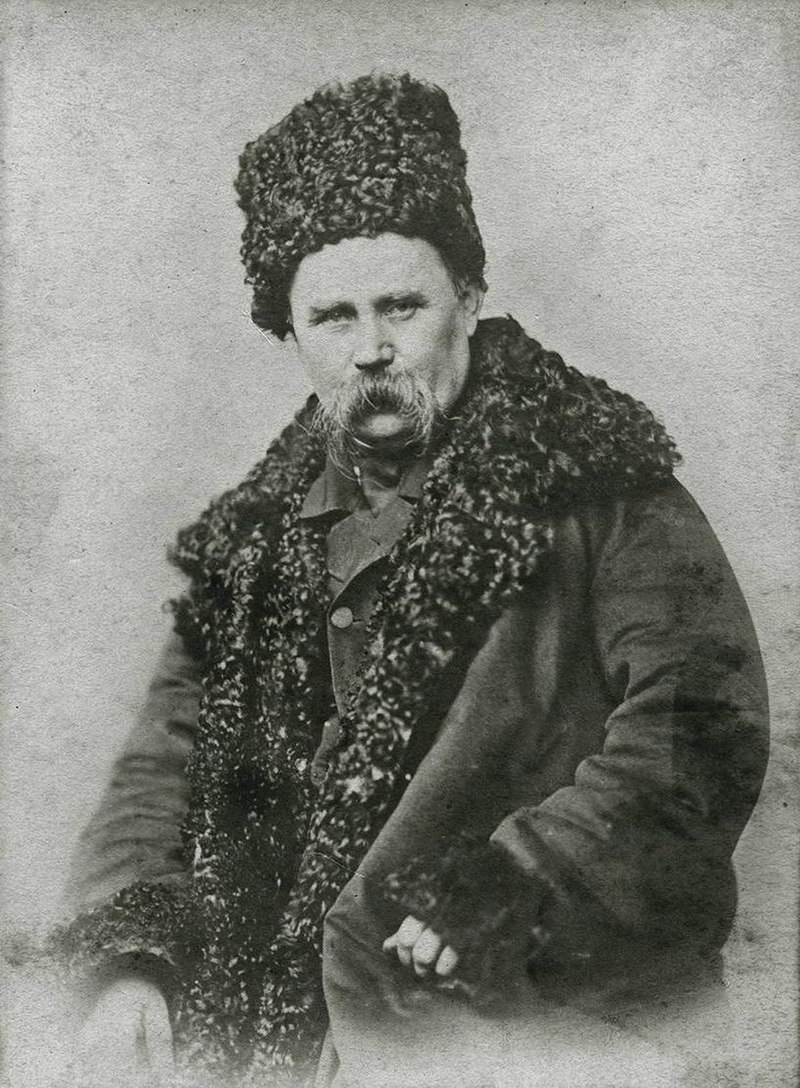| Attribute | Original | Translation |
|---|---|---|
| Title | Гоголю | “To Gogol” (Gogoliyu) |
| Series or Collection | ||
| Author(s) | Тарас Григорович Шевченко | Taras Hryhorovych Shevchenko; Translated by Askold Melnyczuk |
| Region(s) | Україна | Ukraine |
| Date(s) | 1844 | 2023 |

Body Text
Одна давить серце, друга роздирає, А третяя тихо, тихесенько плаче У самому серці, може, й Бог не бачить.
Кому ж її покажу я, І хто тую мову Привітає, угадає Великеє слово?
Всі оглухли — похилились В кайданах . . . байдуже . . . Ти смієшся, а я плачу, Великий мій друже.
А що вродить з того плачу? Богилова, брате . . . Не заревуть в Україні Вольнії гармати.
Не заріже батько сина, Своєї дитини, За честь, славу, за братерство, За волю Вкраїни. Не заріже — викохає
Та й продасть в різницю Москалеві. Це б то, бачиш, Лепта удовиці Та німоті плата. Нехай, брате. А ми будем Сміяться та плакать.
Translation
In the hive, words on words.
One chokes the heart, The other tears it apart, A third weeps softly And God hasn’t heard.
Who will I show her to, The new language, and guess The great word?
Everyone’s deaf, asleep, In chains . . . and who cares? You laugh, I weep, My grand friend.
What fruit Do our tears bear? Strange fruit, brother. Freedom’s cannons Won’t echo across Ukraine.
No father will ever surrender His son for honour’s sake, neither for glory, nor for freedom. He won’t cut him down.
No, he’ll fatten him And, later, sell him To a Moscow butcher. Let it be, brother. You’ll laugh; I’ll weep.
Of the literary figures of 19th Century Ukraine, two in particular stand out to the international community for their literary prowess and fame.
The first is hailed today as the ‘National Bard’ or even ‘National Father’ of Ukraine, whose poems have been celebrated as the first expression of modern Ukrainian nationalism. The second is one of the most reknowned authors of the 19th century worldwide, influencing such authors as Fyodor Dostoyevsky all the way to Franz Kafka. Yet he is hailed as the ‘Father of Russian Literature’ despite his Ukrainian origins.
Together, Taras Shevchenko and Nikolai Gogol present two different forms of nationalizing literature as a comparison points for one another. In the above poem, tellingly entitled “To Gogol,” Shevchenko even makes the comparison between themselves as two Ukrainian figures with different styles as to dealing with their Ukrainianness: Taras Shevchenko was very much aware and vocal about being Ukrainian and being under the Russian Empire, forbidden from displaying a sense of being Ukrainian. For this, he would be exiled to Siberia.
Gogol, by contrast, was aware of his Ukrainian origin within a Russian context, but aligned more with the hierarchy of the Russias (Russia leading as a ‘modern’ state, Belarus/’White Russia’ and Malorossiya/’Little Russia’ eg. Ukraine as quaint, rural provinces) in his stories. Some of his stories, including perhaps his most famous story ‘Christmas Eve,’ deal with quaint, rural Ukrainian subjects of the crown on a magical, whimsical journey to visit the Tsarina Catherine to beseech her favour. Another of his famous stories, ‘Taras Bulba,’ has the eponymous good Ukrainian Cossack father fight against the tyrannical (and very Catholic) Polish King, going to the point of killing his own son who sided with the Poles, and hailing the coming of a (Russian) Tsar to rule the world.
Nonetheless, Taras Shevchenko recognized the enormous influence of Gogol on writing styles and on Ukrainianness. For Gogol, being Ukrainian was an origin and something to mirthfully write about, to glorify in a quaint sort of way. Shevchenko recognizes this; but for him, being Ukrainian is an understanding of being a member of a nation under oppression, being denied its existence by an overarching Empire. Thus, while Gogol laughs, Shevchenko wept.
__________________________________________________________________________________________
Powell, Sara Jo. “You laugh, but I cry:” Nikolai Gogol and Taras Shevchenko’s Poetics of Transition.” PhD diss., Harvard University, 2021. https://nrs.harvard.edu/URN-3:HUL.INSTREPOS:37370188.
Shevchenko, Taras, and Askoid Melnyczuk. For Gogol. The Progressive. Vol. 87. Madison: The Progressive, Inc. 2023.